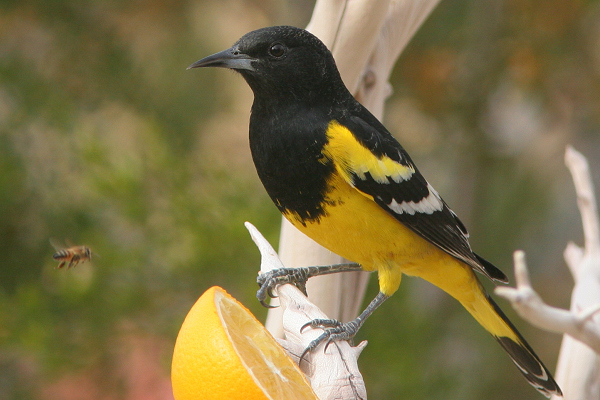
Location: Borrego Springs, CA
Date: 2005-12-18
Lens: Canon 300mm IS F4 + 1.4x II Converter

 Scott's Oriole
Icterus parisorum
Scott's Oriole
Icterus parisorum
 Description
DescriptionThis handsome bird is named after me ... ha, ha. Actually, the Scott's Oriole was named by Darius N. Couch in honour of General Winfield Scott. It was later discovered that the bird had previously been described by Bonaparte, the common name, however, was retained. Feeds on fruit, nectar, and insects.
General: 7.5 to 8.25 inches in length.
Male: Black head, breast, back, wings and tail. Bright yellow lower breast, belly, undertail, rump and shoulder patch. White wing bar. Black, sharply-pointed bill. Immature similar to female.
Female: Olive-green upperparts. Yellowish underparts. Dark streaking on back. Two white wing bars.
Desert grassland prairies and mountain canyons; especially where yucca and palms are present.
 Nesting
Nesting3-5 blueish-white eggs irregularly marked with brown, black, purple, and gray. The eggs have a 12-14 day incubation period. Fledging occurs in 14 days. The eggs are incubated by the female. The nest is a hanging basket made of yucca fibers, palm fibers and fine grass, and lined with softer plant material. The nest is built 3-25 feet above the ground in a yucca, shrub, or tree.